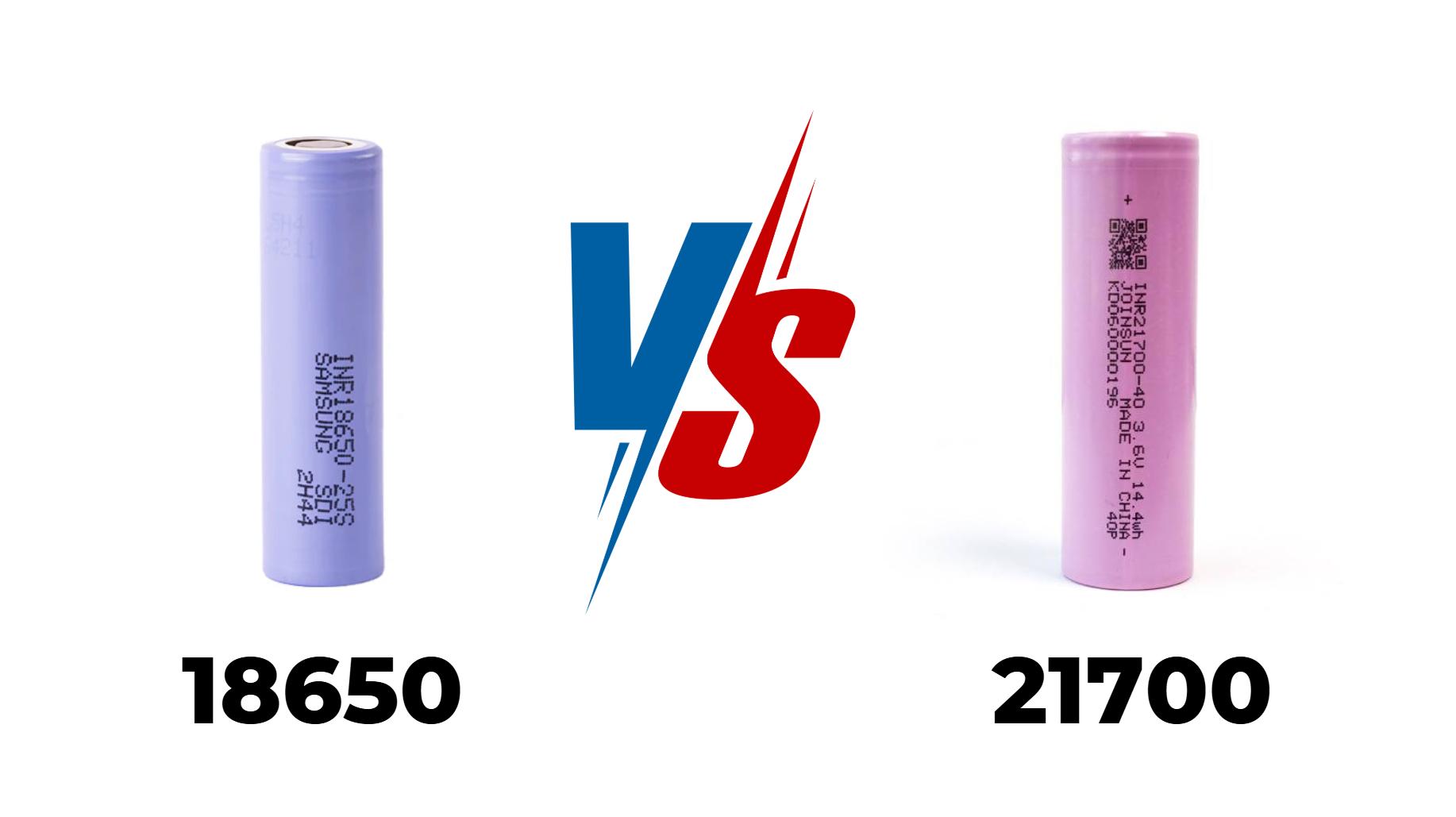The 18650 and 21700 batteries are two popular types of lithium-ion cells used in various applications, from electric vehicles to portable electronics. The primary differences lie in their size, capacity, and performance characteristics, making each suitable for different uses.
What are the key differences between 18650 and 21700 batteries?
The primary differences between 18650 and 21700 batteries are their size and capacity. The 18650 measures 18mm in diameter and 65mm in length, while the 21700 is 21mm by 70mm. The 21700 typically offers a higher capacity, around 5000mAh compared to the 18650’s maximum of about 3500mAh, providing longer runtimes.
The main differences between 18650 and 21700 batteries include their dimensions and energy capacity:
- Size: The 18650 battery measures approximately 18mm in diameter and 65mm in length, while the 21700 battery is larger at about 21mm in diameter and 70mm in length.
- Capacity: The typical capacity of an 18650 battery ranges from 2600mAh to 3600mAh, whereas a 21700 battery can offer capacities from 4000mAh to as high as 5000mAh.
Chart: Size and Capacity Comparison
| Battery Type | Diameter (mm) | Length (mm) | Capacity (mAh) |
|---|---|---|---|
| 18650 | 18 | 65 | 2600 – 3600 |
| 21700 | 21 | 70 | 4000 – 5000 |
How does battery capacity affect performance?
Battery capacity directly influences performance by determining how long a device can operate before needing a recharge. Higher capacity batteries, like the 21700, can deliver more energy over extended periods, making them ideal for high-drain applications. In contrast, lower capacity batteries may require more frequent recharging during intensive use.
Battery capacity directly influences how long a device can run before needing a recharge. A higher capacity means that a battery can store more energy, which translates to longer usage times for devices:
- Devices powered by 21700 batteries typically enjoy longer runtimes due to their higher energy density.
- For example, a flashlight using a 21700 battery may last significantly longer than one using an 18650, especially under high-drain conditions.
Chart: Impact of Capacity on Performance
| Battery Type | Typical Runtime (hours) | Use Case Example |
|---|---|---|
| 18650 | ~2-4 | Flashlight |
| 21700 | ~4-8 | High-performance flashlight |
What are the advantages of using 21700 batteries?
The advantages of using 21700 batteries include higher capacity, allowing for longer usage times; better thermal management, which reduces overheating risks; and enhanced power output, making them suitable for high-drain devices. Additionally, they often have a longer cycle life and improved energy density compared to smaller cells.
The advantages of using 21700 batteries include:
- Higher Capacity: More energy storage allows for longer usage periods without recharging.
- Better Energy Density: This results in improved performance for devices requiring sustained power.
- Cost Efficiency: Fewer cells are needed for equivalent power, which can lower production costs and simplify assembly.
In applications like electric vehicles or high-performance flashlights, these benefits become particularly significant.
How do voltage and energy density compare between the two types?
Both the 18650 and 21700 batteries typically operate at a nominal voltage of 3.7 volts. However, the energy density of the 21700 is generally higher, allowing it to store more energy in a similar volume. This results in better performance for devices requiring sustained power, especially in compact designs.
Both battery types typically operate at a nominal voltage of approximately 3.7 volts, but their energy density differs:
- The energy density of a 21700 battery is generally higher due to its larger size, allowing for more active material.
- This increased energy density means that devices can be designed to be smaller or lighter while still achieving similar or better performance compared to those using smaller cells.
Chart: Voltage and Energy Density Comparison
| Battery Type | Nominal Voltage (V) | Energy Density (Wh/kg) |
|---|---|---|
| 18650 | 3.7 | ~250-300 |
| 21700 | 3.7 | ~300-350 |
When should you choose one battery type over the other?
Choose a 21700 battery for applications requiring longer runtimes or higher power output, such as electric vehicles or high-performance flashlights. Opt for an 18650 battery when size, weight, or cost is a concern, as they are often lighter and less expensive while still providing adequate performance for many devices.
Choosing between an 18650 and a 21700 battery depends on your specific needs:
- Opt for an 18650 battery if you require a more compact solution or if your device is designed specifically for this size.
- Choose a 21700 battery for applications needing longer runtimes, higher power output, or when space allows for slightly larger cells.
Expert Opinions
“Understanding the differences between these two popular lithium-ion batteries is crucial for optimizing performance in your devices,” says Dr. Alex Johnson, a battery technology expert. “While both have their merits, selecting the right one can significantly impact efficiency and usability.”
21700 vs 18650 Lithium Cells
Conclusion
The choice between 18650 and 21700 batteries hinges on factors such as size, capacity, performance needs, and application-specific requirements. While the larger capacity of the 21700 battery offers clear advantages in many scenarios, the compact nature of the 18650 battery remains relevant for various devices.
Frequently Asked Questions
- Can I use a 21700 battery instead of an 18650?
It depends on the device compatibility; ensure it can accommodate the larger size. - Are both types rechargeable?
Yes, both are rechargeable lithium-ion batteries. - Which battery type is better for electric vehicles?
The 21700 battery is generally preferred due to its higher capacity and energy density. - How much do these batteries typically cost?
Prices vary based on brand and specifications; however, larger capacities often come at a slightly higher price point. - What should I consider when choosing between these batteries?
Consider your device’s size constraints, required runtime, and power demands when selecting a battery type.



